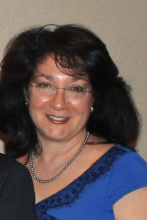By Laura Bellacicco and Sonia Patel
This fall, the US Department of Homeland Security published a change to the public charge rule. Prior to this change, nonimmigrants were prohibited by US law from becoming a public charge. A public charge is defined as “an alien who has received one or more public benefits, as defined in the rule, for more than 12 months within any 36-month period.”
The change will allow students and other legal immigrants to access public health benefits and other supplemental government services. These supplemental services include things such as the Supplemental Nutrition Assistance Program or other nutrition programs, Children’s Health Insurance Program, Medicaid (other than for long-term institutionalization), housing benefits, any benefits related to immunizations or testing for communicable diseases, or other supplemental or special-purpose benefits.
Before this change, being determined to be a public charge was not helpful for a student or scholar because it could result in them being denied future admission to the United States, visas, change of status, or adjustments to Permanent Residence status.
The administration under former US President Donald Trump drafted guidance in 2019 that allowed for housing, health, and nutrition benefits to be considered when determining if an individual became a public charge. Prior to 2019, these benefits were excluded in public charge determinations. This new change, which takes effect on December 23, removes the 2019 guidance issued by the Trump administration.
As it stands currently, our international St. John’s students and scholars (those individuals in F-1 or J-1 status) are required to show adequate funding from their home country to have their student visas issued. Adequate funding includes showing that they can support their tuition costs and fees, housing, living expenses, and student health insurance.
Undoubtedly, international students add their contributions to this country and educational institutions socially, culturally, and financially. However, some students may struggle after they arrive in the US and begin their studies due to currency devaluation in their home countries, war, environmental disasters, or loss of a sponsor’s income. These students are the most vulnerable.
Students’ safety and well-being are essential to succeed in their new environments. Public services such as vaccinations, SNAP, and housing benefits will now be accessible to international students and scholars when this change takes effect.
As US Secretary of Homeland Security Alejandro N. Mayorkas said, “Consistent with America’s bedrock values, we will not penalize individuals for choosing to access the health benefits and other supplemental government services available to them.”
As a Catholic, Vincentian, and global institution responsible for educating international students, we applaud the new rule for providing support services for international students in need.

Laura Bellacicco is a double alumna of St. John’s, with a B.S. in Business Management and M.B.A. in Marketing. After working at Northrop Grumman as a Human Resources Manager, she returned to St. John’s as an employee. She currently works as an International Student and Scholar Advisor holding DSO and ARO designations, and recently celebrated her 12th year at St. John’s.

Sonia Patel joined St. John’s in January and currently works as an International Student and Scholar Advisor, holding DSO and ARO designations. She has a J.D. and B.A. in Political Science and came to St. John’s after working for foreign missions to the United Nations.
Related News
Entangled Across Borders: Celebrating 100 Years of Quantum Physics Through a Global Classroom
In Spring 2025, I implemented the first iteration of the Global Online Learning Exchange (GOLE) in my Scientific Inquiry class at St. John’s University, a core class focused on how scientists make...
Grazie, Papa Francesco: Notes on the Passing of Pope Francis
Loreal is a junior at St. John’s University majoring in International Management with a minor in Social Justice : Theory and Practice in the Vincentian Tradition . She is also the President of the...
Snapshots: New Students from Around the World
The St. John’s community specializes in being a welcoming, friendly, accepting place and so we are excited to introduce you to some of our new international students. We hope these students will...
